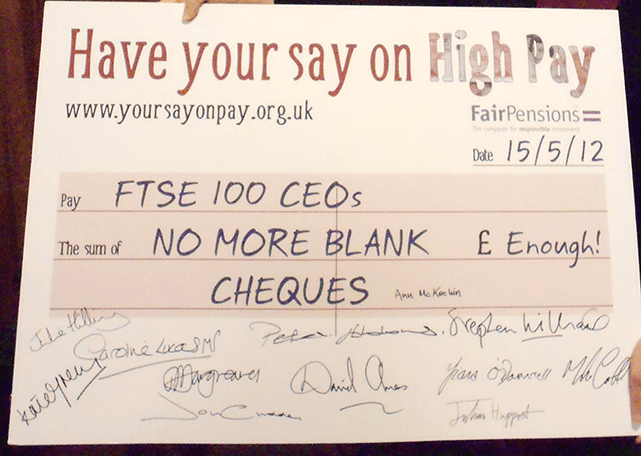While the biggest win in shareholder activism came with oversight on executive compensation packages for banks and corporations, shareholder activism went down 49 per cent in 2010, at least in the number of shareholder resolutions filed. But the movement has changed significantly over the past several years, and fewer resolutions filed could mean companies are taking notice.
The Ontario Securities Commission’s proposal to introduce mandatory say-on-pay requirements—meaning shareholders can vote on executives’ remuneration—is encouraging.
Meritas CEO Gary Hawton says they’re “looking at mandating what we have been asking for one company at a time.” By the end of this proxy season, Hawton believes in excess of 50 companies will have committed to providing an annual vote on executive compensation packages.
Over the past three years Meritas Mutual Funds has led the most significant shareholder movement on the issue of executive compensation. Meritas filed 26 resolutions proposing the board of directors for corporations adopt say-on-pay requirements.
Say-on-pay is already universally mandated in the U.K. and Australia.
Now, every major Canadian Bank—CIBC, BMO, TD Bank, Scotiabank, RBC—has agreed to this proposal, along with some surprising corporations, including Russel Metals Inc., Barrick Gold Corp. and Major Drilling Group International Inc.
The good news is shareholder filings are effective, the bad news may be that they’ve dropped.
The drop may look like it’s part of a trend in the continuous decline of filings in Canada—175 resolutions in 2008 to last year’s 48, but Laura O’Neill for one isn’t worried.
As the director of law and policy at Shareholder Association for Research and Education, O’Neill says it’s a fluctuation rather than a trend. “Shareholders are not becoming less concerned about environment, social and governance matters.” Given the small pool of actively engaged shareholders in Canada, “it almost takes one shareholder, who is an active filer, to take one year off to drive the number down.”
Quebec-based Robert Verdun of Mouvement d’éducation et de défense des actionaires or MEDAC filed 77 per cent of Canadian shareholder resolutions in 2009 and then took 2010 off. However, Verdun’s absence is not the only reason numbers were down.
O’Neill also considers withdrawn resolutions a success, since it usually means a dialogue has opened between management and the filer to discuss the issues at hand. But she’s still hoping for increased shareholder engagement by Canadian investors.
That way, one vacationing filer won’t be cause for alarm.







